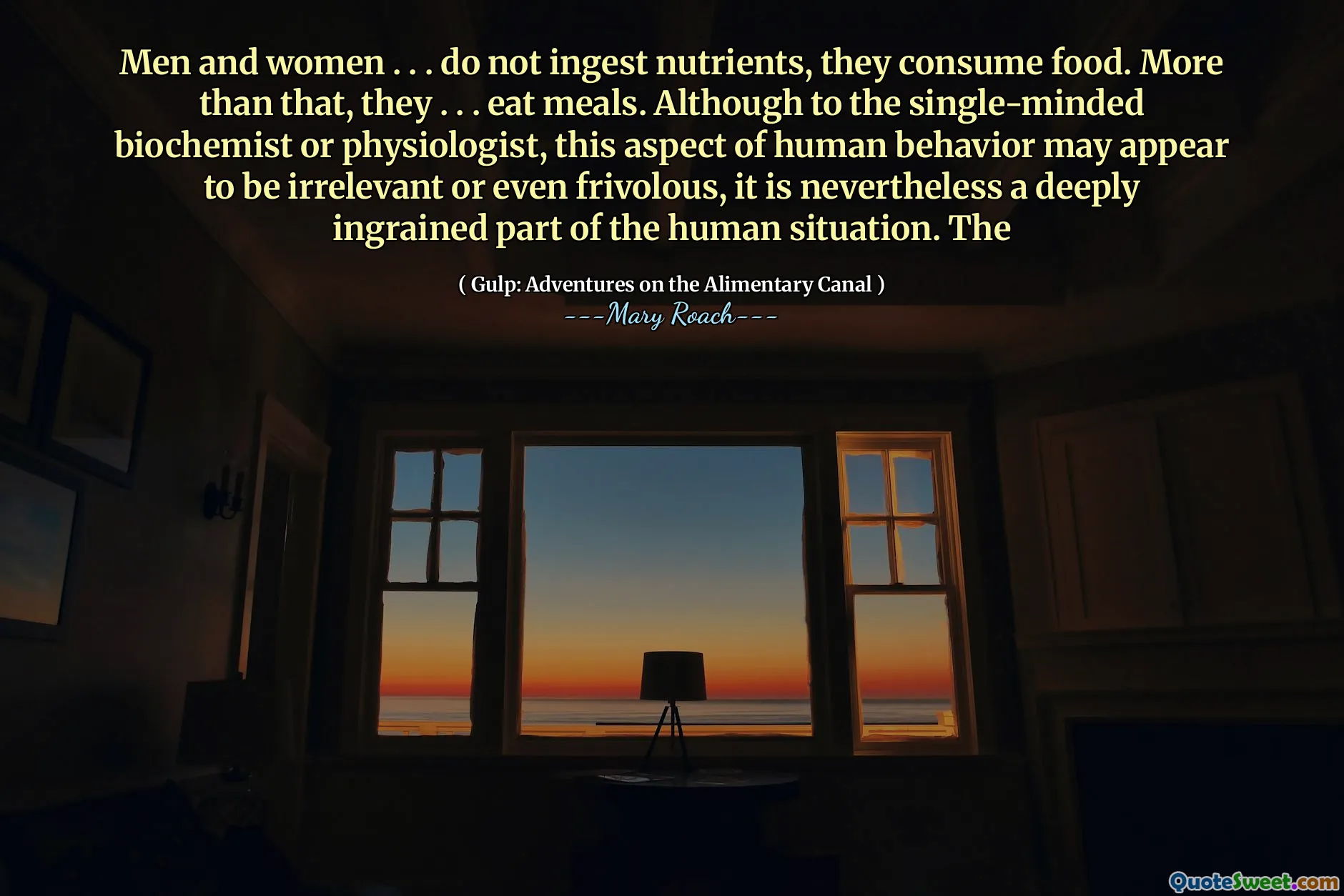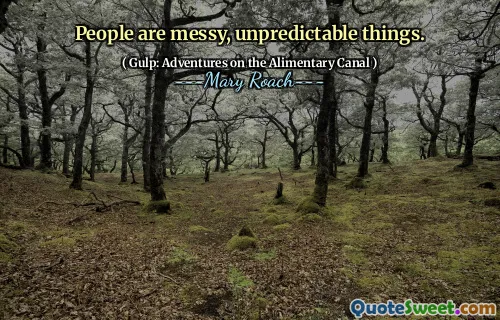
Men and women . . . do not ingest nutrients, they consume food. More than that, they . . . eat meals. Although to the single-minded biochemist or physiologist, this aspect of human behavior may appear to be irrelevant or even frivolous, it is nevertheless a deeply ingrained part of the human situation. The
In "Gulp: Adventures on the Alimentary Canal," Mary Roach emphasizes that the act of eating goes beyond simply ingesting nutrients. She argues that food is not merely a biological necessity but rather a fundamental part of human experience, where meals carry significance and social meaning. This perspective challenges the narrow view of food as just a source of nutrition, highlighting the complex relationship humans have with their meals.
Roach suggests that while biochemists and physiologists may focus strictly on the physiological aspects of food consumption, such a reductionist view overlooks the deeper cultural and emotional dimensions of eating. Meals represent much more than sustenance; they are intertwined with human behavior and societal norms, reflecting the importance of food in our lives beyond its nutritional content.






